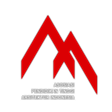Strategi Pengembangan Kampung Topeng Malang sebagai Kampung Wisata Budaya
DOI:
https://doi.org/10.21776/ub.ruas.2022.020.02.8Keywords:
village, culture, tourism, needsAbstract
The Desaku Menanti Program is a government program that is relocating the homeless to a new village as a tourist destination, one of the results of the program is the Mask Tourism Village. The potential of Malangan Mask cultural characteristics to be the main attraction of this tour was able to attract many visitors at the beginning of its inauguration. But it didn't last long, now the village is deserted and no one even comes. This research will examine how the strategy of developing Kampung Mask as a cultural tourism village. The method used is a mix-method, namely a qualitative method with SWOT and a quantitative method with an analysis of tourist needs preferences for cultural tourism villages with questionnaire. The results of the study indicate that this village needs to dig deeper into the concept of culture, improve the quality of its facilities, and also have a well-managed tourism management with community participation. Based on the analysis of tourist preferences, it was found that if it was necessary to add facilities and other cultural attractions, 49% of respondents chose the visual characteristics of settlements with traditional buildings and accommodation was villas in nature.
References
Albaladejo-Pina, I. P., & DÃaz-Delfa, M. T. (2009). Tourist preferences for rural house stays: Evidence from discrete choice modelling in Spain. Tourism Management, 30 (6), 805–811.
Aqidah, Waqi’atul. (2020). Analisis Pemberdayaan Ekonomi Masyarakat Melalui Pendidikan Ekonomi Nonformal (Studi Kasus pada Masyarakat Wisata Kampung Topeng, Kelurahan Tlogowaru, Kota Malang). Jurnal Pendidikan Ekonomi: Jurnal Ilmiah Ilmu Pendidikan, Ilmu Ekonomi, dan Ilmu Sosial, 14(2), 382-391
Aqidah, Waqi’atul. (2020). Transisi Kehidupan Ekonomi Masyarakat Wisata Kampung Topeng, Tlogowaru, Malang, Ejournal Universitas Islam Zainul Ahsan , 1(1), 146-157.
Bonetti, E., Simoni, M., & Cercola, R. (2014). Creative Tourism and Cultural Heritage: A New Perspective. IGI Global Publisher: Handbook of Research on Management of Cultural Products: E-Relationship Marketing and Accessibility Perspectives, pp 29.
Cooper, Fketcher, J., Gilbert, D., and Wanhill, S. (1995). Tourism, Principles and Practice. London: Logman.
food and the sustainable tourism experience.
Herdiyono, W. F., Marsudi, & Nugroho, R. A. (2021). Perencanaan Strategi Pengembangan Potensi Desa Cemoro Sebagai Desa Wisata Berbasis Masyarakat dan Budaya. Jurnal AsIAN, 9(2), 279–290.
Journal of Sustainable Tourism. 17(3): 321–
Ning, Chai & Hoon, Oh Dong. (2011). Sustainable development strategy of tourism resources offered by regional advantage: Exploring the feasibility of developing an ‘exotic culture’ resource for Weihai City of China. Elesevier. Procedia Engineering 21 Tahun 2011, 543-552.
Permana, R. W. (2018). Wisata Kampung Topeng Diharapkan Jadi Penumpang Ekonomi Warga Setempat. Retrieved from https://m.merdeka.com/malang/kabar-malang/wisata-kampung-topeng-diharapkan-jadi-penumpang-ekonomi-warga-setempat-181031k.html
Santos, N., Moreira, C. O., Ferreira, R., & Silveria, L. (2020). Sea Tourism Heritage in Portuguese Coastal Territory. IGI Global Publisher: Journal of Managing, Marketing, and Maintaining Maritime and Coastal Tourism, pp 29.
Sayadi, S., González-Roa, M. C., & Calatrava-Requena, J. (2009). Public preferences for landscape features: The case of agricultural landscape in mountainous Mediterranean areas. Land Use Policy, 26(2), 334–344.
Sims, R. 2009. Food, place and authenticity: local
Sims, R. 2009. Food, place and authenticity: local food and the sustainable tourism experience. Journal of Sustainable Tourism, 17(3): 321–336.
Sugiama, A. G. (2011). Ecotourism: Pengembangan Pariwisata berbasis konservasi alam. Bandung : Guardaya Intimarta.
Sunaryo, B. 2013. Kebijakan Pembangunan Destinasi Pariwisata Konsep dan Aplikasinya di Indonesia. Yogyakarta : Gava Media.
Suwantoro, G. (2004). Dasar-dasar Pariwisata. Yogyakarta: Andi Offset.
Syafi’i, M. & Suwandono, D. (2015). Perencanaan Desa Wisata Dengan Pendekatan Konsep Community Based Tourism (CBT) Di Desa Bedono, Kecamatan Sayung, Kabupaten Demak. Jurnal RUANG Universitas Diponegoro, 1(2), 51-60.
Yani, A. (2021). Kampung Topeng Malang Tetap Berbenah Meski Sepi Karena Korona. Retrieved from https://radarmalang.jawapos.com/malang-raya/kota-malang/28/06/2021/kampung-topeng-malang-tetap-berbenah-meski-sepi-karena-korona/
Zaenuri, M. (2012). Perencanaan Strategis Kepariwisataan Daerah: Konsep dan Aplikasi. Yogyakarta: e-Gov Publishing.
Downloads
Published
How to Cite
Issue
Section
License
Authors who publish with this journal agree to the following terms:
- Authors retain copyright and grant the journal right of first publication with the work simultaneously licensed under a Creative Commons Attribution License that allows others to share the work with an acknowledgement of the work's authorship and initial publication in this journal.
- Authors are able to enter into separate, additional contractual arrangements for the non-exclusive distribution of the journal's published version of the work (e.g., post it to an institutional repository or publish it in a book), with an acknowledgement of its initial publication in this journal.
- Authors are permitted and encouraged to post their work online (e.g., in institutional repositories or on their website) prior to and during the submission process, as it can lead to productive exchanges, as well as earlier and greater citation of published work (See The Effect of Open Access).












